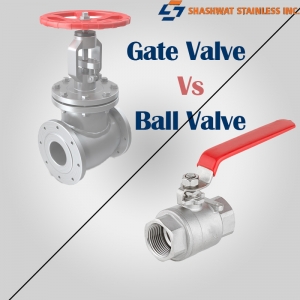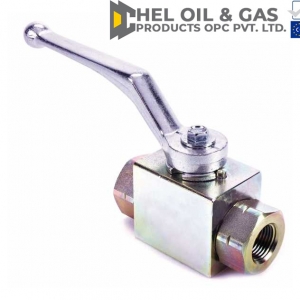D Chel Valves are the Top Valve Manufacturers in India. Valves play a crucial role in controlling the flow of fluids in various industries and applications. When it comes to selecting the right valve for your specific needs, two common options are gate valves and ball valves. Both have their unique characteristics and applications, and choosing the right one can make a significant difference in your system's efficiency and performance. In this blog, we will explore the differences and advantages of gate valves and ball valves, helping you make an informed decision.
Gate Valve vs. Ball Valve
Gate Valves:
Gate valves are a traditional and widely used type of valve that regulates fluid flow through the raising and lowering of a wedge-shaped gate. The primary characteristics of gate valves include:
Full Flow:
Gate valves provide a straight-line, unobstructed flow path when fully open, minimizing pressure drop and allowing for high flow rates. This makes them ideal for applications where low resistance and minimal turbulence are essential.
Isolation:
Gate valves excel at providing a tight seal when fully closed, making them an excellent choice for isolation applications. They effectively stop the flow of fluid, preventing any leakage.
Multi-turn Operation:
Gate valves are typically operated with multiple turns of the handwheel or a similar mechanism. This means they may not be the best choice when quick or frequent adjustments are necessary.
Applications:
Gate valves are commonly used in applications where the valve is either fully open or fully closed, such as in water supply systems, pipelines, and sewage treatment plants.
Ball Valves:
Ball valves, on the other hand, use a spherical closure (the "ball") with a hole in it to regulate fluid flow. Ball valves have their own set of advantages:
Quick On/Off:
Ball valves are known for their rapid operation. A simple 90-degree turn of the handle can open or close the valve completely, which is crucial in applications that require frequent changes in flow or emergency shut-off.
Minimal Leakage:
Ball valves provide excellent sealing properties, minimizing the risk of leakage when fully closed. This is particularly important in applications where even small leaks can be detrimental.
Versatility:
Ball valves are highly versatile and can be used in a wide range of applications, including gas and liquid systems, chemical processing, and industrial settings.
Reduced Maintenance:
Ball valves typically have fewer components than gate valves, resulting in reduced maintenance requirements and longer service life.
Comparing Gate Valves and Ball Valves:
Now, let's compare these two types of valves in various aspects:
Flow Control:
Gate valves offer better control over flow rates when they are fully open, while ball valves provide more precise control over smaller flow rates due to their quarter-turn operation.
Pressure Drop:
Gate valves have lower pressure drop when fully open, making them preferable for high-flow applications. Ball valves may have a slightly higher pressure drop.
Sealing:
Both gate valves and ball valves offer excellent sealing capabilities when fully closed, but gate valves may be more suitable for critical applications due to their design.
Operation:
Ball valves are easier to operate, especially when quick adjustments are necessary. Gate valves require more turns to fully open or close.
Maintenance:
Ball valves generally require less maintenance over their lifespan, making them a cost-effective choice in the long run.
Applications:
Gate valves are ideal for isolation applications, while ball valves are versatile and can be used in a wide range of applications.
Top Ball Valve Manufacturers in India: Dchel Valve
D Chel Valves are the Top Ball Valve Manufacturer in India.Dchel Valves is known as one of India's most significant types of valves Manufacturers and suppliers. We supply the best quality products of Valves.
Beside Ball Valve Suppliers, We Are
Ball Valve Suppliers in Saudi Arabia
Ball Valve Suppliers in Nigeria
Ball Valve Suppliers in Singapore
Dchel Valves' motto has been delivering quality Valves products to the customer's delight & not just manufacturing products.
Conclusion:
In the gate valve vs. ball valve debate, the choice ultimately depends on the specific requirements of your application. If you need precise flow control, quick on/off operation, and reduced maintenance, a ball valve may be the better option. On the other hand, if you require a valve for isolation and prefer a design that minimizes pressure drop when fully open, gate valves are a solid choice.





